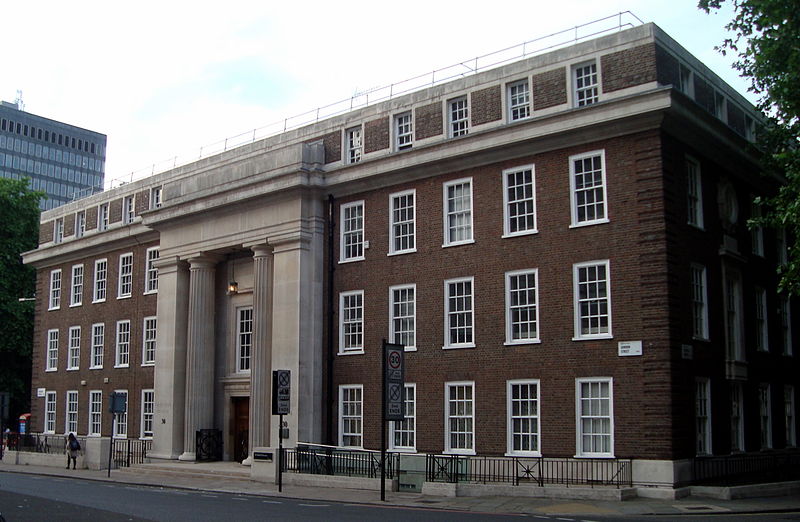University College London faces criticism over enforcement of immigration controls for international students
University College London has faced criticism over their enforcement of immigration controls for international students, with staff and students calling the policies discriminatory.
The dispute was caused when the university advised lecturers to carry out random spot checks on students’ identity documents and when one of the UCL’s leading faculties warned in an email that staff who fail to report students breaking the terms of their visa and immigration requirements “may be liable to a £20,000 personal fine per case”.
In May, lecturers were told they should monitor international students’ attendance through “spot checks based on face-to-face verification, as well as checking registers for signs of abuse and challenging suspicious signatures” by the university’s student immigration compliance team.
The guidance also stated that “acceptable spot checking methods [include] checking the IDs of a sample of students”.
The policy also required academic supervisors to meet postgraduate students monthly in person, including during the summer holidays, unless the student is on study leave.
An email was then sent to academics and administrative staff at the Bartlett, UCL’s faculty of the built environment, after concerns that, according to the UCL branch of the University and College Union (UCU), 63 students at the Bartlett School of Environment, Energy and Resources had failed to provide sufficient evidence of their attendance.
It warned that staff would face a £20,000 fine for failing to report immigration breaches by international students. It said the money would be deducted from a lecturer’s “discretionary account”, which provides financial support to research staff and also covers expenses for conferences, travel and training, purchasing equipment and computers.
One member of staff said in an email that “this could have significant consequences for [the students]. If UK Visas and Immigration takes action against any of them we may also suffer reputational damage.”
A spokesman for the UCL branch of the UCU said staff and students across the university had written to the president and provost, Professor Michael Arthur, expressing their dissatisfaction with the immigration controls.
The spokesman said: “Staff in other departments have received stern emails threatening ‘draconian measures’ against staff failing to comply with the monitoring of international students.”
A survey published in mid-July by UCL’s student union found 83% of 400 international students who responded felt the university’s visa compliance regulations were discriminatory.
The union also stated that students have been threatened with being reported to the Home Office if they fail to follow the procedures.
Mark Crawford, an officer at the students’ union, added: “These new visa compliance procedures are absurd, unnecessary and academically illiterate. They’re turning our lecturers into border guards, and we’re calling on them to be reviewed urgently.”
Both warnings from the University concern the monitoring of international students from outside the European Union’s single market and Switzerland, also known as Tier 4 students.
Since 2010, under the “hostile environment policy”, universities are required to inform the Home Office of any breaches in an international student’s visa or immigration status.
Postgraduate student Javiera Sandoval, who is on a Tier 4 visa, said: “The amount of stress and anxiety caused by having to run around to get people to sign in my attendance is absolutely horrible and it’s having a serious impact on time I’d rather spend doing my work.”
Sanaz Raji, an independent researcher and founder of the campaign group Unis Resist Border Controls (URBC), which obtained the email about the threatened fines, said there was an atmosphere of fear about immigration controls in many universities.
She continued: “The fact that UCL is using threats to force lecturers to comply is telling. It creates a culture of fear and a punitive educational environment. Overseas students are under enormous surveillance and monitoring and that impacts on their mental health and studies.”
Alan Penn, dean of the Bartlett, said on Twitter in the midst of the criticism that Theresa May’s hostile environment policy was “hateful, discriminatory and fundamentally wrong”.
He added that although “we live in a democracy and must abide by the laws and regulations our elected leaders impose”, he pledged to take “every opportunity to press for change”.
UCL later said that the email about the fines was sent in error. There was also a retraction of and apology for the policy was sent to staff.
A spokeswoman said the immigration spot checks were withdrawn in June and she was not aware that they had ever been used. She did say though that the requirement for students to meet their supervisor once a month was still in place.
She said: “To meet our Tier 4 Visa monitoring requirements, we are required by UK Visas and Immigration to have engagement monitoring systems and processes which facilitate attendance at timetabled teaching events to be evidenced and non-attendance to be followed up and acted on in a timely manner.
“This includes evidence of both weekly engagement for those students undertaking undergraduate study or the taught elements of a postgraduate programme and monthly engagement for other students engaged in non-timetabled studies.”

Comments